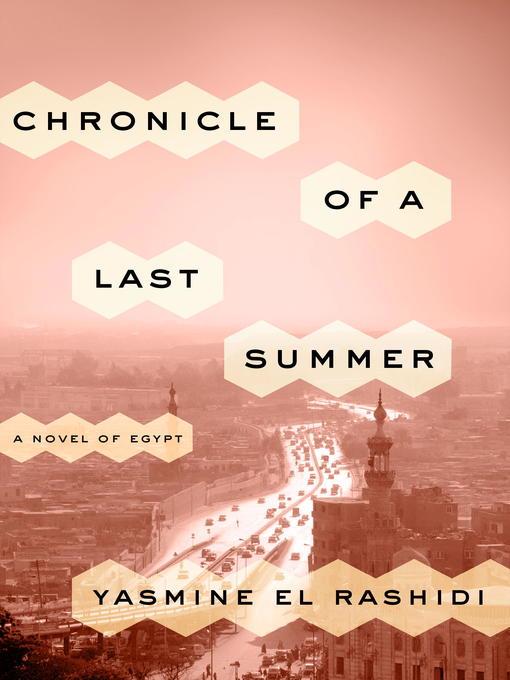
Chronicle of a Last Summer
A Novel of Egypt
کتاب های مرتبط
- اطلاعات
- نقد و بررسی
- دیدگاه کاربران
نقد و بررسی

April 25, 2016
Rashidi’s nostalgic debut novel recounts three summers in Cairo. The book begins in the summer of 1984, shortly after Hosni Mubarak becomes President. The unnamed narrator is a young girl who lives with her mother and grandmother and attends an English school. Her Baba—her father—is away, in Geneva, she thinks. Her cousin Dido dotes on her and tries to engage her in more political talk. The second section of the book is set in 1998, when the narrator is now a university student and an aspiring filmmaker. Dido has grown even more political. The young people all yearn for change but what shakes them up is a massacre and a deep fear of terrorism. Finally, we meet the characters again in the summer of 2014, after the Arab Spring and Mubarak’s ouster. The narrator is living with her mother once again and still awaiting news about her Baba. She is acutely aware of how difficult it is to affect any real change, and Dido prefers anarchy to the despotism of Mubarak. In many ways, the book illustrates how the personal is political: almost every facet of daily life has some political implication, and the narrator sees writing as a tool of change, too. El Rashidi’s family saga twists and turns but ultimately suffers from too much meandering. Agent: Zoe Pagnamenta, Zoe Pagnamenta Agency.

May 15, 2016
A woman endures three decades of change and revolution, as seen through her account of three pivotal summers--1984, 1998, and 2014--spent in her family's Cairo home.El Rashidi's first novel is a vivid portrait of life in Egypt spanning her narrator's life from childhood through university days, when she struggles to define art's role in politics. A carefully observant and wildly imaginative child, the narrator describes the monkey bars on the school playground as being shaped like an igloo. And it's this enduring imagination that helps her believe her businessman father is away, maybe in Geneva, when, we intuit, he's one of the many who have been taken away for crossing the government. There's beauty in how the novel shows what its characters know while showing their efforts not to know this same information. At her British school, she writes a story about a prison where people are taken only at night; the teacher gives her "zero out of ten and says I shouldn't be writing such things at my age." But such things are what she experiences. Ghosts populate the waking dreams of the daughter and her mother: ghosts of the grandmother and aunt who occupied an entire floor of their home, now "an echo chamber"; the ghost of Baba, the absent father and husband; and the ghost of a friend known as Uncle. A family is measured by whether their power works when the neighborhood's goes out; the Sadats were "related to us, but not close enough for our power cuts to stop, too." Connections can save and take lives. Despite living in a culture not used to change, she constantly questions her views through her friendship with her communist cousin, Dido. A desire to understand the shifting power dynamics in Cairo drives her, even as she chooses to translate literature: "I heard the word revolution all the time but didn't know exactly what it meant. Nobody answered me when I asked." An atmospheric kaleidoscope about survival and the moments that, together, become movements.
COPYRIGHT(2016) Kirkus Reviews, ALL RIGHTS RESERVED.

























دیدگاه کاربران